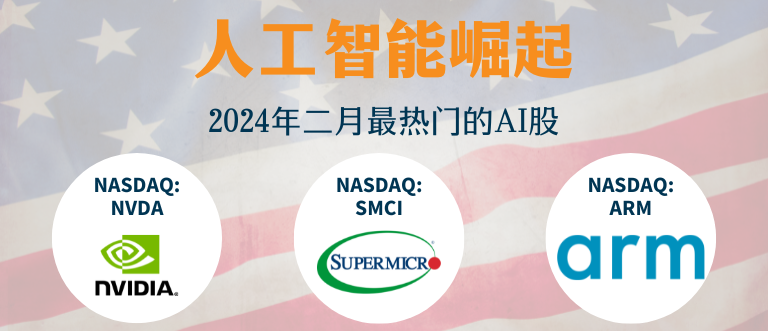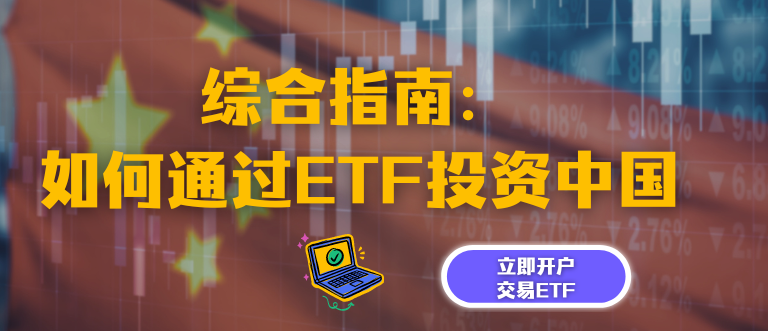Initial Public Offering
Table of Contents
Initial Public Offering
Potentially lucrative rewards are available to those who participate in initial public offerings (IPOs). You should know the extra risks and regulations involved with initial public offering (IPO) investments and how trading these securities varies from regular stock trading before you invest.
What is an Initial Public Offering?
The first time the public may buy shares in a privately held firm is through an initial public offering or IPO. Companies can attract public investors and their equity capital through initial public offerings (IPOs).
When a firm goes public, existing private investors usually receive a share premium, so this is a good opportunity for them to cash out all their profits. At the same time, it opens the door for public investors to join the sale.
Understanding Initial Public Offering
An initial public offering (IPO) is the first sale of stock by a private firm to the general public. An initial public offering (IPO) essentially signifies a change in ownership from private to public ownership of a corporation. The process of an initial public offering (IPO) is frequently called “going public” because of this. Companies of all sizes, from startups to those with decades of experience, have the option to go public through initial public offerings (IPOs). Common reasons for a firm to go public include paying off debt, funding expansion efforts, increasing visibility, or providing an opportunity for corporate insiders to diversify their portfolios or generate liquidity through the sale of private shares. When a business decides to “go public,” the next step is to select a lead underwriter who will assist with registering securities and distributing shares. The lead underwriter will create a syndicate of investment banks and broker-dealers to sell shares of the initial public offering (IPO) to institutional and individual investors.
Types of Initial Public Offering
Many IPO Types
Two primary forms of initial public offerings (IPOs) are used today. These individuals are-
1) Fixed Price Offering
Some corporations’ initial share offerings (IPOs) have a fixed price, often known as the issue price. Once a firm decides to go public, investors find out how much their stocks are worth.
Once the issuance is concluded, the market demand for the stocks may be determined. Investors who wish to participate in this initial public offering (IPO) must apply for shares at the full price.
2) Book Building Offering
During book building, the firm launching an initial public offering offers investors a 20% price band on equities. Before the final price is determined, interested investors place bids on the shares. Investors must indicate their share price and the quantity of shares they wish to purchase here.
The term “floor price” describes the lowest possible share price, while “cap price” describes the maximum possible stock price. Investors’ bids ultimately decide the share price.
Working on Initial Public Offering
Companies are deemed private before they go public. Early backers, including the founders, family, friends, and professional investors, such as VCs and angels, have contributed to the firm’s growth as a pre-IPO private company with a limited number of shareholders.
A major milestone for every firm is the initial public offering (IPO), which opens the door to a flood of capital. This opens up more opportunities for the organisation to grow and flourish. It may also be able to secure better conditions when borrowing money thanks to the enhanced transparency and legitimacy of its share listing.
Advertising an interest in going public occurs when a firm feels it is ready to handle the demands of SEC laws, public shareholder advantages and duties, and the inevitable challenges that come with it.
This growth stage is typically experienced by companies that have achieved unicorn status, defined as a private valuation of around $1 billion. Nevertheless, according to listing standards and market competition, private firms with solid fundamentals and shown profitability potential might potentially be eligible for an initial public offering (IPO).
Underwriting due diligence helps value a company’s initial public offering (IPO) shares. When a company goes public, ownership of its shares changes from private to public, and the value of the shares held by current private shareholders increases to their market value. Underwriting for shares may also contain unique clauses about the conversion of private to public ownership.
Alternatives to Initial Public Offerings
Direct Listing
The absence of underwriters in an initial public offering (IPO) results in a direct listing. By passing the underwriting procedure, direct listings expose issuers to more risk in the event of a poor offering performance; nevertheless, issuers have a better chance of realising a higher share price. Only companies with strong brands and promising business models can often pull off a direct offering.
Dutch Auction
There is no predetermined IPO price in a Dutch auction. Interested parties can bid on shares based on their price points. The available shares are thereafter distributed to the bidders who expressed the highest level of willingness to pay.
In summary
You commit to buying shares of stock in an initial public offering (IPO) at the price they’re being sold at before the stock hits the secondary market. The issuer and lead underwriter consider various criteria, including the level of interest shown by potential investors, when determining this offering price.
You should check with your brokerage to see if they participate in new issue equity offerings and, if so, what the prerequisites are for investing in an initial public offering (IPO). Those qualified to participate in an initial public offering (IPO) are usually wealthy individuals or seasoned traders aware of the dangers involved. Due to high demand outstripping supply, individual investors may have trouble acquiring shares in an initial public offering (IPO). Many brokerage companies restrict access to initial public offerings (IPOs) because of their high demand. This is done by imposing trading frequency criteria, long-term client relationships, or large asset-holding requirements on potential participants.
Frequently Asked Questions
A major milestone for every firm is the initial public offering (IPO), which opens the door to a flood of capital. This opens up more opportunities for the organisation to grow and flourish. It may also be able to secure better conditions when borrowing money thanks to the enhanced transparency and legitimacy of its share listing.
Large investors like hedge funds and banks typically get first dibs on shares in an initial public offering (IPO), making it harder for regular people to buy in. Soon after an initial public offering (IPO), common investors can buy shares in the newly publicised firm.
Public offering provides a way to invest in startups with the potential to generate money in the long run. Initial public offerings (IPOs) may be good for small investors because of the clear pricing and low entry points. To generate wealth, astute investors should keep an eye on forthcoming IPOs.
To determine the price per share, an investment bank provides the firm with a valuation, which is subsequently divided by the total number of shares to be issued.
One way to offer assets to the general public is through an IPO, or Initial Public Offering. When it comes to money with a lengthy or indefinite maturity, it’s the biggest source for the firm. A company’s journey to success begins with an initial public offering (IPO). It opens the public capital market to a company’s funding needs.
Related Terms
Most Popular Terms
Other Terms
- Options expiry
- Adjusted distributed income
- International securities exchanges
- Settlement currency
- Federal funds rate
- Synthetic ETF
- Physical ETF
- Notional amount
- Negative convexity
- Jumbo pools
- Inverse floater
- Forward Swap
- Underwriting risk
- Reinvestment risk
- Final Maturity Date
- Payment Date
- Secondary Market
- Margin Requirement
- Mark-to-market
- Pledged Asset
- Yield Pickup
- Subordinated Debt
- Trailing Stops
- Treasury Stock Method
- Stochastic Oscillator
- Bullet Bonds
- Basket Trade
- Contrarian Strategy
- Exchange Control
- Notional Value
- Relevant Cost
- Dow Theory
- Speculation
- Rand cost averaging
- Sustainable investment
- Stop-limit sell order
- Constant prepayment rate
- Covenants
- Companion tranche
- Synthetic replication
- Beneficiary
- Reverse stock splits
- Quiet period
- Prepayment risk
- Interpolation
- Homemade leverage
- Hyperdeflation
- Hope Credit
- Prime bank investments
- Purchasing power
Know More about
Tools/Educational Resources
Markets Offered by POEMS
Read the Latest Market Journal

本文旨在为中级外汇交易者提供必要的信息和知识。它将涵盖我们上一篇文章 “五分钟看懂世界上最活跃的市场-外汇差价合约(FX CFD)...

解锁台湾股市的投资潜力!深入了解由强大的技术驱动型经济推动的股票市场,2023 年机械和电气设备将占出口的 69%。在政治稳定、投资者友好的法规和健全的法律框架下,探索台积电和富士康等全球顶级企业。台湾股市值得称赞的历史表现和在国际贸易中的的重要性使其更具吸引力。在这个科技实力雄厚、经济稳定、充满活力的股票市场中,抓住增长机遇!

了解外汇市场 外汇交易市场又称外汇市场,是一个买卖货币的全球性金融市场。它是全世界规模最大、流动性最强的金融市场,每日交易量超过 6 万亿美元。但外汇市场有一个重要却常被忽视的一点,就是它受交易心理的影响。在本文中,我们将探讨外汇市场的复杂性,还有把重点放在交易心理与传统交易策略共同发挥的关键作用...

五分钟看懂世界上最活跃的市场 -外汇差价合约(FX CFD)
外汇交易市场俗称外汇或外汇市场,是全球金融市场的支柱。它是世界上最活跃的市场,2022 年 4 月,全球交易额达到创纪录的每天 7.5 万亿美元[1] 。这个活跃的市场为交易者提供了利用货币价格波动赚取利润的机会。在本文中,我们将解释外汇市场的基本原理,助您了解其投资机制。 什么是外汇? 外汇市场是一个分散的全球市场,世界上所有货币都在这里进行交易...

随着通胀数据趋向 2% 的理想目标,人们普遍乐观地认为,在任何可能的降息之前,市场都不会受到不利影响。以下是美股市场2024年的一些重要事件,投资者在做出投资决策时可以参考留意。

根据《东南亚态势报告:2023》,失业和经济衰退是当前东南亚面临的主要挑战。各国采取了各种政策和措施以恢复经济,尽力摆脱新冠疫情的影响。尽管如此,越南在经济和社会方面展现出了令人满意的复苏迹象,经济增长逐季上升,成为世界经济的亮点之一。虽然全年GDP增速放缓至5.05%,低于政府6.5%的目标,但越南仍然是地区和世界经济增速较快的国家之一。






















